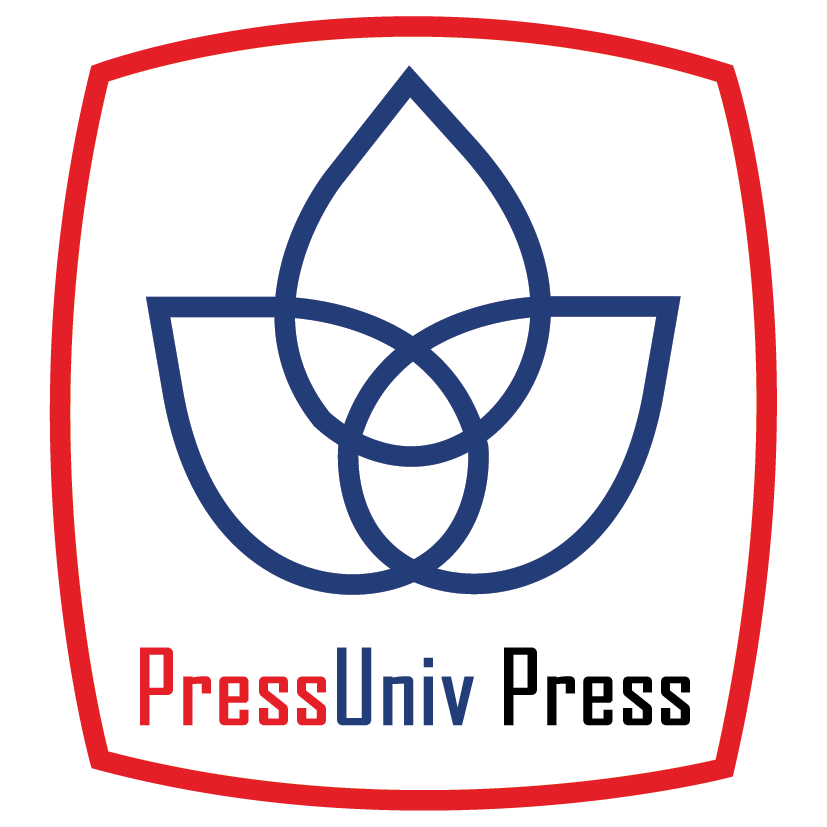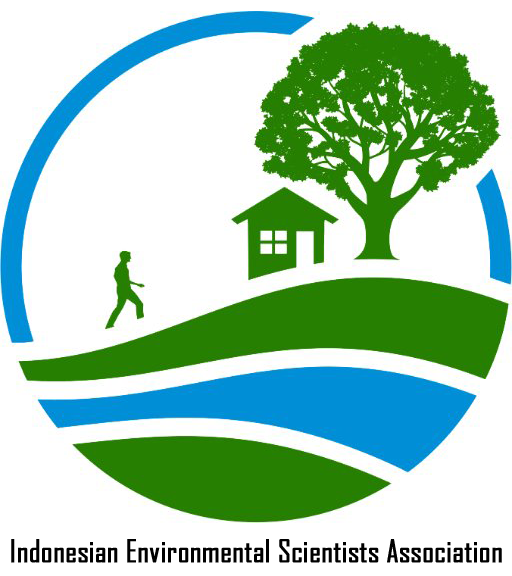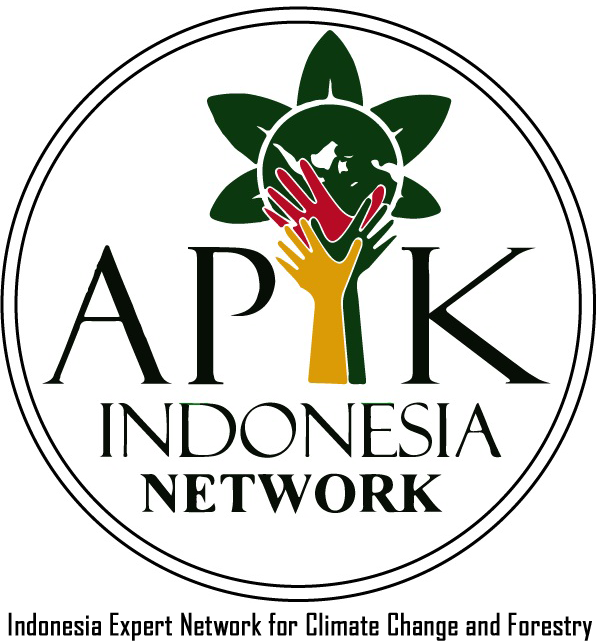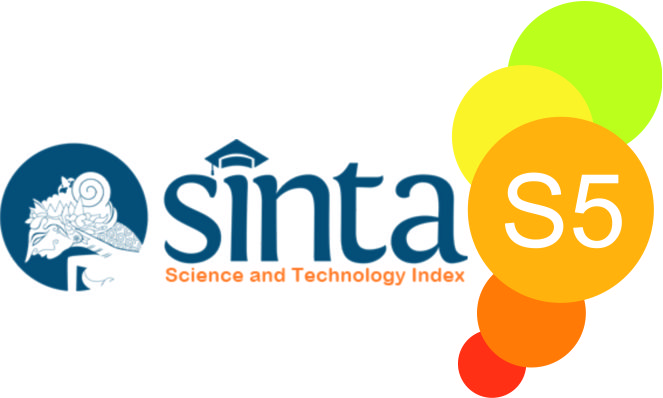Pengembangan Strategi Bisnis Ekowisata Yang Berkelanjutan
Abstract
This research was conducted to combine the potential ecological conditions with the business model of Taman Nasional Gunung Gede Pangrango (TNGGP). Objectives: The goal of this research is to recomend the ecotourism bussiness strategy that combines with principles of sustainable development in the TNGGP. The research design was descriptive and analyzed by SWOT analysis. The recomended business strategies are strictly guardhouse supervision, for climbers are not allowed to cut, burn, move ar damage the natural beauty of TNGGP enviroment, vandalism and littering prohibited, camp in predetermined place and oriented the visitor how do ecotourism properly and correctly. The strategy can be applied with maximize the efforts to prevent the natural ecology and aesthetics damage, reduce water pollution around TNGGP, improve visitor behavior and their awareness not to damage the TNGGP area, enhance the role of communities around TNGGP in order to improve community welfare.
Keywords
Full Text:
PDF (Bahasa Indonesia)References
AdrianaTisca, I. et al. (2016) ‘Management of Sustainable Development in Ecotourism. Case Study Romania’, Procedia Economics and Finance. Elsevier B.V., 39(November 2015), pp. 427–432. doi: 10.1016/s2212-5671(16)30344-6.
Angelevska-Najdeska, K. and Rakicevik, G. (2012) ‘Planning of Sustainable Tourism Development’, Procedia - Social and Behavioral Sciences, 44, pp. 210–220. doi: 10.1016/j.sbspro.2012.05.022.
Chancharat, S. (2011) ‘Thai Tourism and Economic Development: The Current State of Research’, Contemporary Ob/Gyn, 56(12), pp. 340–351.
Chettamart, S. (2014) Ecotourism Resources and Management in Thailand. Presented paper at Malaysia-Thailand Technology and Business Partnership Dialogue, 27-28 July 2003, Langkawi, Malaysia.
Dràbkovà, A. (2012) ‘Tourists in Protected Landscape Areas in the Czech Republic – a Sociological Survey’, Procedia Environmental Sciences, 14, pp. 279–287. doi: 10.1016/j.proenv.2012.03.027.
Gabriela-Cornelia, P., Iudith, I. and Alexandru, B. (2015) ‘New Theoretical and Practical Approaches of Implementing the Circular Economy for the Preservation of Natural Resources’, Procedia Economics and Finance. Elsevier B.V., 22(November 2014), pp. 124–130. doi: 10.1016/s2212-5671(15)00235-x.
Habibi, F., Rahmati, M. and Karimi, A. (2018) ‘Contribution of tourism to economic growth in Iran’s Provinces: GDM approach’, Future Business Journal. Elsevier B.V., 4(2), pp. 261–271. doi: 10.1016/j.fbj.2018.09.001.
Habibullah, M. S. et al. (2016a) ‘A Cross-Country Analysis on the Impact of Tourism on Threatened Plant Species’, Procedia - Social and Behavioral Sciences. The Author(s), 224(August 2015), pp. 14–19. doi: 10.1016/j.sbspro.2016.05.394.
Habibullah, M. S. et al. (2016b) ‘Tourism and Biodiversity Loss: Implications for Business Sustainability’, Procedia Economics and Finance. Elsevier B.V., 35(October 2015), pp. 166–172. doi: 10.1016/s2212-5671(16)00021-6.
Idajati, H., Pamungkas, A. and Vely Kukinul, S. (2016) ‘The Level of Participation in Mangrove Ecotourism Development, Wonorejo Surabaya’, Procedia - Social and Behavioral Sciences. The Author(s), 227(November 2015), pp. 515–520. doi: 10.1016/j.sbspro.2016.06.109.
Jalani, J. O. (2012) ‘Local People’s Perception on the Impacts and Importance of Ecotourism in Sabang, Palawan, Philippines’, Procedia - Social and Behavioral Sciences. Elsevier B.V., 57, pp. 247–254. doi: 10.1016/j.sbspro.2012.09.1182.
Kamble, Z. and Bouchon, F. (2014) ‘Tourism Planning and a Nation’s Vision: A Review of the Tourism Policy of Sri Lanka’, Procedia - Social and Behavioral Sciences. Elsevier B.V., 144, pp. 229–236. doi: 10.1016/j.sbspro.2014.07.291.
Khoshtaria, T. K. and Chachava, N. T. (2017) ‘Prospects of ecotourism development in recreation areas of South Georgia’, Annals of Agrarian Science. Elsevier Ltd, 15(3), pp. 312–317. doi: 10.1016/j.aasci.2017.07.004.
Koondoko, Y. Y. F., Darma Putra, I. N. and Paturusi, S. A. (2017) ‘Pengembangan Pariwisata Kabupaten Kepulauan Talaud Provinsi Sulawesi Utara’, Jurnal Master Pariwisata (JUMPA), 4, pp. 136–150. doi: 10.24843/jumpa.2017.v04.i02.p09.
Lillebø, A. I. et al. (2019) ‘Ecosystem-based management planning across aquatic realms at the Ria de Aveiro Natura 2000 territory’, Science of the Total Environment. The Authors, 650, pp. 1898–1912. doi: 10.1016/j.scitotenv.2018.09.317.
Martínez, R. M., Galván, M. O. and Lafuente, A. M. G. (2014) ‘Public Policies and Tourism Marketing. An Analysis of the Competitiveness on Tourism in Morelia, Mexico and Alcala de Henares, Spain’, Procedia - Social and Behavioral Sciences. Elsevier B.V., 148, pp. 146–152. doi: 10.1016/j.sbspro.2014.07.028.
Mastika, I. K. (2018) ‘Pengembangan Ekowisata Berwawasan Kearifan Lokal Di Wilayah Eks Karesidenan Besuki , Jawa Timur’, 4, pp. 240–252.
Namsawat, O. and Rugwongwan, Y. (2018) ‘An evaluation of corporate customer need with regard to the use of product service systems for the furniture business through environmental marketing’, Kasetsart Journal of Social Sciences. Elsevier Ltd, pp. 1–7. doi: 10.1016/j.kjss.2018.07.014.
Nassep, M., El-Sammak, A. and Misak, R. (2017) ‘Lessons learned from the application of Management Effectiveness Evaluation in Sabah Al-Ahmad Natural Reserve: Implications for conservation in Kuwait’, Journal of Taibah University for Science. Taibah University, 11(6), pp. 868–882. doi: 10.1016/j.jtusci.2017.04.001.
Pakpahan, R. (2018) ‘Implementasi Prinsip Pariwisata Berbasis Komunitas Di Desa Wisata Nglinggo Yogyakarta’, Jurnal Master Pariwisata (JUMPA), 05, p. 129. doi: 10.24843/jumpa.2018.v05.i01.p07.
Paresashvili, N. (2014) ‘Major Tasks of Ecotourism Management in Georgia’, Procedia - Social and Behavioral Sciences. Elsevier B.V., 156(April), pp. 170–173. doi: 10.1016/j.sbspro.2014.11.164.
Program Studi Magister dan Doktor Penyuluhan Pembangunan Universitas Sebelas Maret (2016) ‘Prosiding Seminar Nasional Penyuluhan Pembangunan 2016’, in, pp. 1–600. doi: 10.1017/CBO9781107415324.004.
Quoquab, F. and Mohammad, J. (2016) ‘Environment Dominant Logic: Concerning for Achieving the Sustainability Marketing’, Procedia Economics and Finance. Elsevier B.V., 37(16), pp. 234–238. doi: 10.1016/s2212-5671(16)30119-8.
Samat, N. and Harun, N. (2013) ‘Urban Development Pressure: Challenges in Ensuring Sustainable Tourism Development in Langkawi Island’, Procedia - Social and Behavioral Sciences. Elsevier B.V., 91, pp. 385–394. doi: 10.1016/j.sbspro.2013.08.435.
Sangchumnong, A. (2018) ‘Development of a sustainable tourist destination based on the creative economy: A case study of Klong Kone Mangrove Community, Thailand’, Kasetsart Journal of Social Sciences. Elsevier Ltd, pp. 1–8. doi: 10.1016/j.kjss.2018.02.002.
Sangha, K. K., Russell-Smith, J. and Costanza, R. (2019) ‘Mainstreaming indigenous and local communities’ connections with nature for policy decision-making’, Global Ecology and Conservation. Elsevier Ltd, 19, p. e00668. doi: 10.1016/j.gecco.2019.e00668.
Sekulovic, N. (2015) ‘Trends and New Initiatives in Tourism at the Time of the General Economic Crisis and the Current Situation in Serbian Tourism’, Procedia Economics and Finance. Elsevier B.V., 23(October 2014), pp. 1628–1634. doi: 10.1016/s2212-5671(15)00451-7.
Sesotyaningtyas, M. and Manaf, A. (2015) ‘Analysis of Sustainable Tourism Village Development at Kutoharjo Village, Kendal Regency of Central Java’, Procedia - Social and Behavioral Sciences. Elsevier B.V., 184(August 2014), pp. 273–280. doi: 10.1016/j.sbspro.2015.05.091.
Situmorang, D. B. M. and Mirzanti, I. R. (2012) ‘Social Entrepreneurship to Develop Ecotourism’, Procedia Economics and Finance. The Authors, 4(Icsmed), pp. 398–405. doi: 10.1016/s2212-5671(12)00354-1.
Song, D. and Kuwahara, S. (2016) ‘Ecotourism and World Natural Heritage: Its influence on islands in Japan’, Journal of Marine and Island Cultures. Institution for Marine and Island Cultures, Mokpo National University, 5(1), pp. 36–46. doi: 10.1016/j.imic.2016.05.006.
Sutawa, G. K. (2012) ‘Issues on Bali Tourism Development and Community Empowerment to Support Sustainable Tourism Development’, Procedia Economics and Finance. The Authors, 4(Icsmed), pp. 413–422. doi: 10.1016/s2212-5671(12)00356-5.
Tegallalang, D. I. C. (2018) ‘Penerapan Pariwisata Berkelanjutan’, 4, pp. 269–283.
Treves, A., Santiago-Ávila, F. J. and Lynn, W. S. (2019) ‘Just preservation’, Biological Conservation. Elsevier, 229(July 2018), pp. 134–141. doi: 10.1016/j.biocon.2018.11.018.
Vitasurya, V. R. (2016) ‘Local Wisdom for Sustainable Development of Rural Tourism, Case on Kalibiru and Lopati Village, Province of Daerah Istimewa Yogyakarta’, Procedia - Social and Behavioral Sciences. Elsevier B.V., 216(October 2015), pp. 97–108. doi: 10.1016/j.sbspro.2015.12.014.
Watts, J. D. et al. (2019) ‘Village transfers for the environment: Lessons from community-based development programs and the village fund’, Forest Policy and Economics. Elsevier, 108(January), p. 101863. doi: 10.1016/j.forpol.2019.01.008.
Wei, F. (2012) ‘Compendium of Best Practices in Sustainable Tourism’.
Wikaningrum, T. (2018) ‘PENGELOLAAN LINGKUNGAN KAWASAN INDUSTRI ( Studi Kasus Kawasan Industri Jababeka dan EJIP di Kabupaten Bekasi ) Pengelolaan lingkungan kawasan industri masyarakat Indonesia sejalan dengan pertumbuhan industri yang tinggi dan serta Sistem Manajemen Lingkung’, Journal of Enviroment Engineering & Waste Management, 3(1), pp. 36–47.
Yilmaz, O. (2011) ‘Analysis of the potential for ecotourism in Gölhisar district’, Procedia - Social and Behavioral Sciences, 19, pp. 240–249. doi: 10.1016/j.sbspro.2011.05.129.
DOI: http://dx.doi.org/10.33021/jenv.v5i1.992
Copyright (c) 2020 Devi Roza K. Kausar, Haswan Yunaz, Reny Andriyanty

This work is licensed under a Creative Commons Attribution-ShareAlike 4.0 International License.
Journal of Environmental Engineering and Waste Management Published by PresUniv Press, in collaboration with IESA and APIK Indonesia Network




